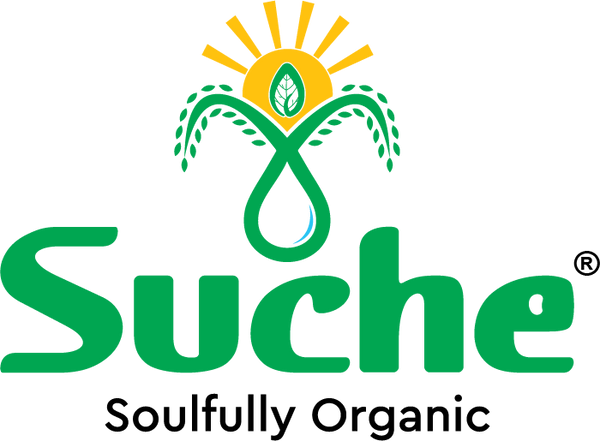Why is organic food better Than Inorganic Food?
or
Organic Foods vs. Inorganic Foods: Which One to Choose?
Introduction
The food we eat has a significant impact on our health and well-being. Hence, it is essential to pick foods that aid in our health. In addition, how our food is produced can significantly impact the environment, and organic and inorganic farming practices differ considerably. As a result, and in recent years, the debate between organic and inorganic foods has gained momentum.
Organic foods are often considered to be more environmentally friendly as they are grown using natural and traditional processes. Whereas inorganic foods are grown using synthetic pesticides, fertilizers, or genetically modified organisms (GMOs), inorganic foods are conventionally grown using these synthetic substances.
It is advised by the food regulatory bodies to stay away from products that mention Phthalates, Perfluoroalkyl Chemicals (PFCs), Perchlorate, and artificial food colors on their packages. It is because these substances were used in their production and may eventually harm the body.
Hence, we will help you with an insight into why you should choose organic foods and their magical benefits.
Benefits of Organic Foods
While the researchers are still researching the benefits of organic foods, there are instances that say organic foods have positive impacts on human health and the environment.
Free from chemical residues
Organic foods do not contain any chemical residues or pesticides that cause any harmful effects on human health.
Tasty and healthy
Most of the people who have switched to organic foods claim that organic foods are tasty compared to inorganic (normal) foods that are consumed on a daily basis.
Rich in nutrients
For the fact that organic foods are grown in nutrient-rich soil, organic foods are often richer in nutrients than conventionally grown foods.
Non-toxic food
Also, the nitrate concentrations are low in organic products. And therefore, organic foods are poison-free.
Good for environment
Growing organic foods uses traditional farming methods, making them more environmentally sustainable. In contrast, conventional farming methods use synthetic chemicals and GMOs, which can negatively impact the ecosystem.
Animal welfare
While conventional foods we consume regularly are prone to antibiotics, growth hormone injections, or growth-promoting drugs, organic animal products come from animals grown in natural habitats free from growth-stimulating injections.
Supporting small farmers
Buying organic foods can support small-scale farmers who use sustainable practices, which helps to promote a more diverse and resilient food system.
Free from antibiotic resistance
Inorganic (normal foods) frequently contain antibiotics. Regular consumption of such foods develops antibiotic-resistant bacteria in our bodies that can change a person's immune system and impair their ability to fight infections. Organic foods are free from antibiotic residues, making those safe for consumption foods.
Conclusion
Organic food items promote a healthier lifestyle from kids to senior citizens. That’s why choosing organic food is worth every rupee, as they are nutritious, safer for the environment, and to consume.
Making a tiny change is the kindest thing you can do for the environment and yourself. As even a small change by us can create a tremendous difference. Therefore, choosing organic food over inorganic will always be the best decision.
Are you ready to get started? Let's go organic!




